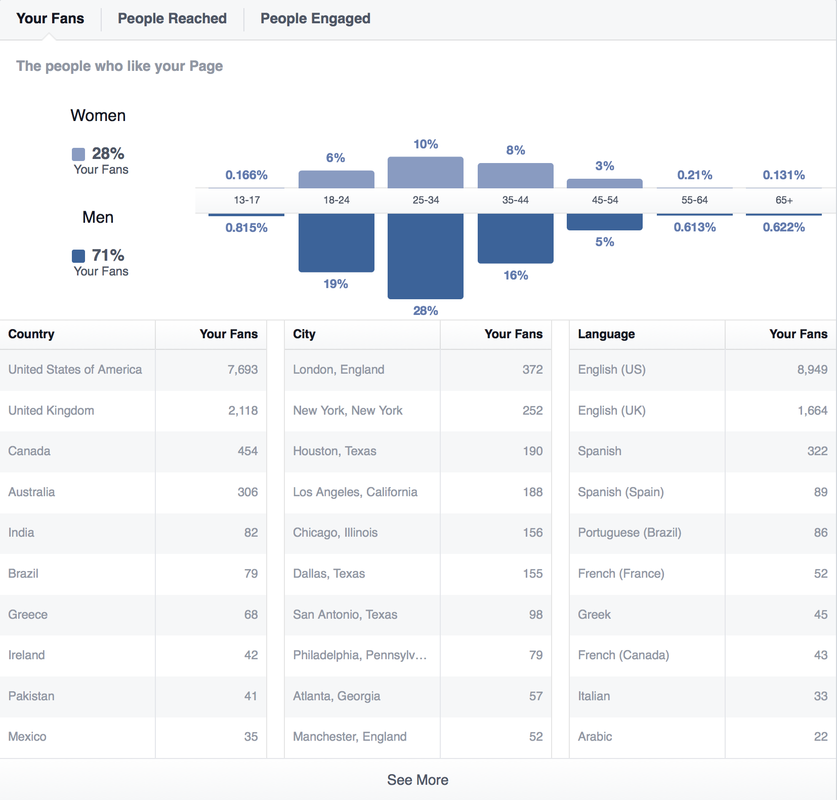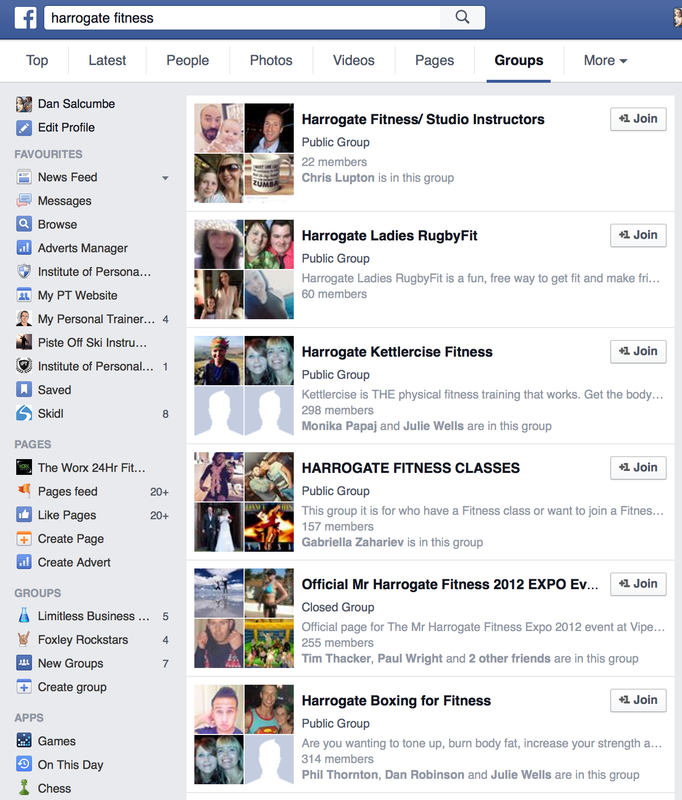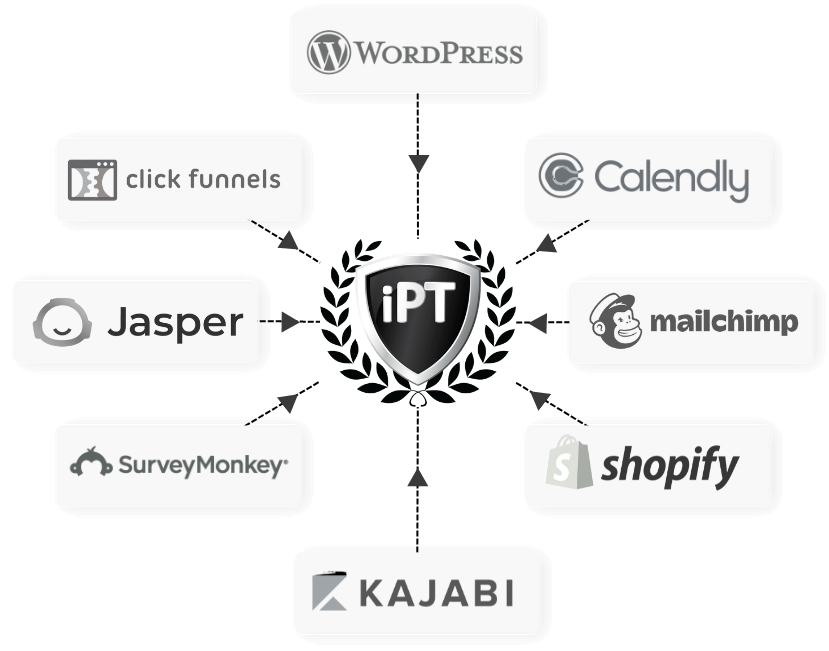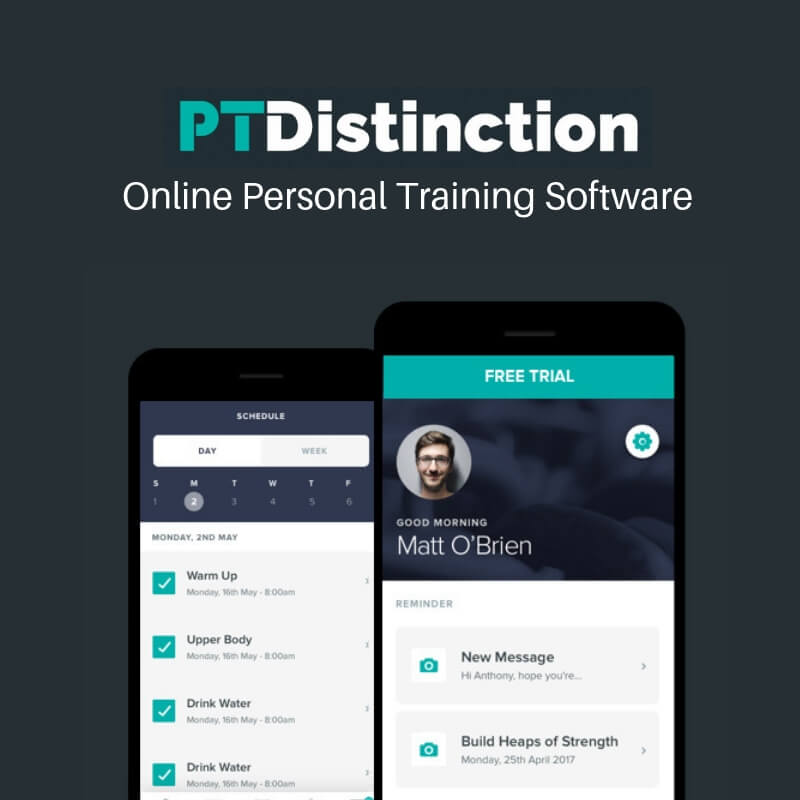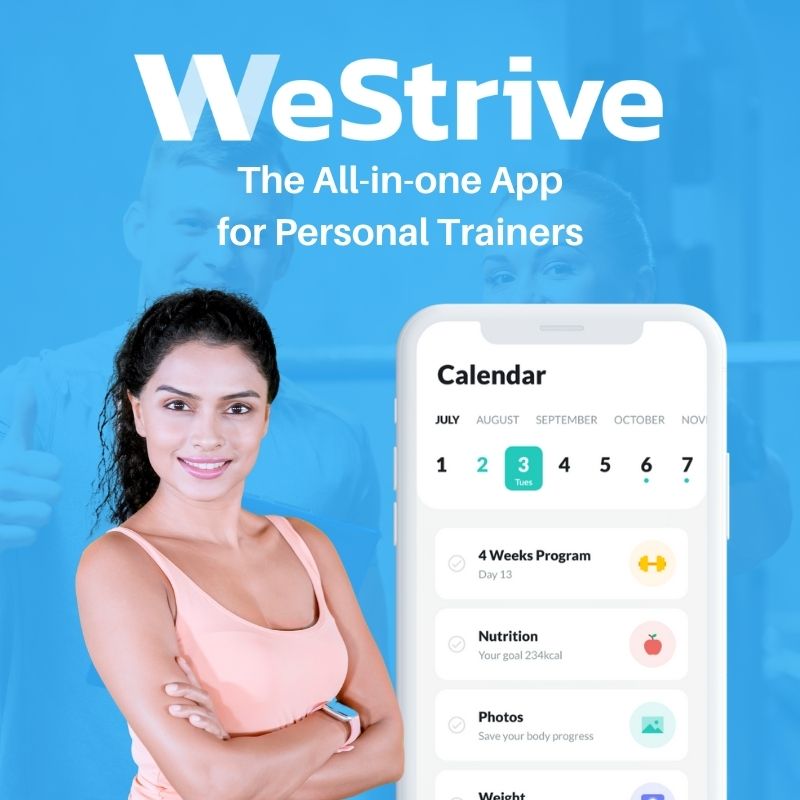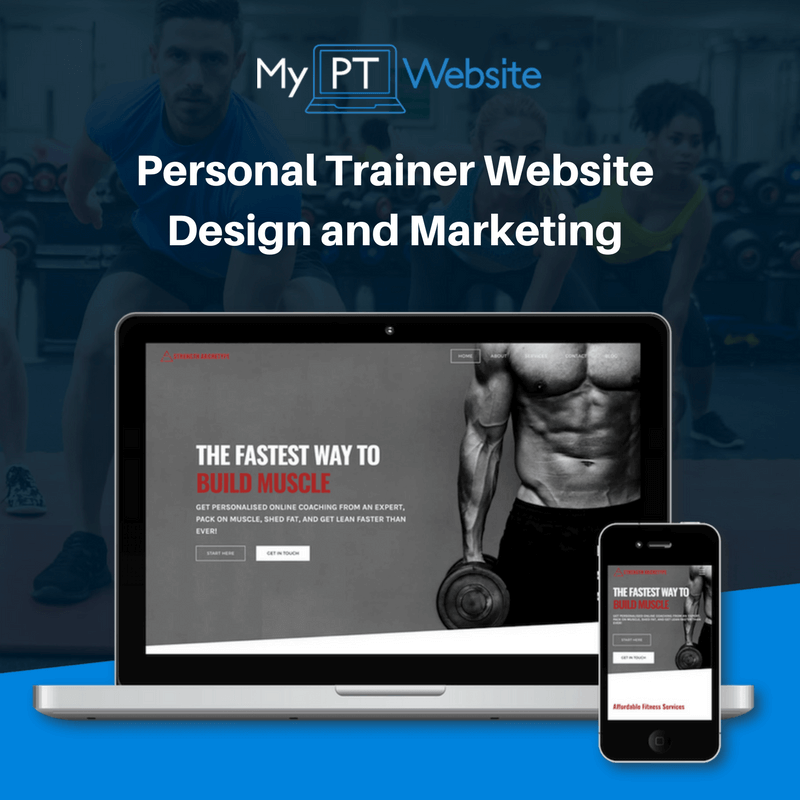Learn More About Getting to Know Your Clients
What You'll Learn
In this lesson we're going to talk about a few ways to easily find out who your ideal clients are so that you can position yourself where they are and learn how to speak the same language as them and grab their attention.
Why Is This Important?
Good marketing is about matching your expertise and service with the problems your clients think they have. If you advertise a nutrition program but your clients think they need a personal trainer, your business is going to struggle.
In this lesson we're going to talk about a few ways to easily find out who your ideal clients are so that you can position yourself where they are and learn how to speak the same language as them and grab their attention.
Why Is This Important?
Good marketing is about matching your expertise and service with the problems your clients think they have. If you advertise a nutrition program but your clients think they need a personal trainer, your business is going to struggle.
Step 1 - The Importance of Market Research
Before you spend time or money marketing your services, you need to know who you’re talking to. We've already thought about who you're talking to but now we're going to dig deeper (again).
Start to ask yourself these questions about your ideal client:
Knowing these things about your prospective clients will help you attract them, connect with them, and ultimately sell to them.
Let's look at an example to put this in perspective …
Let’s say you’re a sports performance coach for under 16's.
You think your ideal under 16's clients want to increase endurance … so you approach all your marketing from a “increase endurance” perspective …
Unfortunately, your ideal client doesn’t connect with your message. Maybe their most pressing issue isn’t endurance? Why? Because their parents are the decision makers so really, you need to appeal to the parents, not the teen.
Wouldn’t you like to know all that before you create your entire marketing plan?
To do that, start with solid research and understanding your target market and their true wants.
So how to do your market research? Let's look at some avenues in the following steps.
Start to ask yourself these questions about your ideal client:
- What do they think they need?
How do they describe their problems?
How do they feel about their problems?
How does your service solve those problems?
Knowing these things about your prospective clients will help you attract them, connect with them, and ultimately sell to them.
Let's look at an example to put this in perspective …
Let’s say you’re a sports performance coach for under 16's.
You think your ideal under 16's clients want to increase endurance … so you approach all your marketing from a “increase endurance” perspective …
Unfortunately, your ideal client doesn’t connect with your message. Maybe their most pressing issue isn’t endurance? Why? Because their parents are the decision makers so really, you need to appeal to the parents, not the teen.
Wouldn’t you like to know all that before you create your entire marketing plan?
To do that, start with solid research and understanding your target market and their true wants.
So how to do your market research? Let's look at some avenues in the following steps.
Step 2 - How To Get Feedback From Clients
When researching why your customers would want to buy your product or service, the best resource and the first thing you should turn to is your existing clients (if you have any).
Asking real clients – who have paid actual money – gives you real insight. In many cases they will tell you exactly why they choose you over someone else.
Then, you can use that information to appeal to potential clients just like them. (Note: This is only advised if you like your current clients.)
When someone buys your product or service, immediately ask him or her, “Why did you purchase today?” or something similar. For example, you might ask:
The sooner you ask this question, the better because you want the information while it’s fresh on their mind.
Asking real clients – who have paid actual money – gives you real insight. In many cases they will tell you exactly why they choose you over someone else.
Then, you can use that information to appeal to potential clients just like them. (Note: This is only advised if you like your current clients.)
When someone buys your product or service, immediately ask him or her, “Why did you purchase today?” or something similar. For example, you might ask:
- What about (this service) are you most excited about?
- Why did you choose to invest in (product or service) today?
- What was the biggest factor that led you to hiring me as your personal trainer vs. other personal trainers?
The sooner you ask this question, the better because you want the information while it’s fresh on their mind.
- You could add a form to your “thank you” page
- Ask past current clients via phone or email
- Make this question part of your client intake process.
Step 3 - How To Use Social Media For Research
Of course, social media has to get a mention. When it comes to understanding your ideal clients, social media is a great marketing tool. All you have to do is setup a business page on selected accounts and you can access loads of useful data. Let's take a look at a few tricks.
Facebook Page Insights
If you've had a Facebook business page for a some time you can get a tonne of info from the page insights tab. To get data on all your fans as a whole, head over to the Page Insights feature (found at the top of your Page Manager).
Page Insights allows you to view basic demographic data about your audience. They give you information on Gender and Age, Countries, Cities, and Language.
Here’s a screenshot from our Page Insights:
Facebook Page Insights
If you've had a Facebook business page for a some time you can get a tonne of info from the page insights tab. To get data on all your fans as a whole, head over to the Page Insights feature (found at the top of your Page Manager).
Page Insights allows you to view basic demographic data about your audience. They give you information on Gender and Age, Countries, Cities, and Language.
Here’s a screenshot from our Page Insights:
As you can see, the majority of our fans are 25-34 years of age, from the USA and male.
When we focus our marketing efforts on that demographic, our results are much better. Why? Because we’re appealing to the majority of our fans.
Facebook Page Groups
To understand what your clients need and how they talk about their problems, join as many Facebook Groups as you can. The groups you join should be local to you (if you train clients locally) and related to your niche. To find the right groups, just use the search bar at the top of Facebook and sort the results by groups. Here's the result I got from looking for anything fitness related in Harrogate.
LinkedIn is primarily for businesses and professional networking but as a personal trainer, you likely want to work with businesses … right? If so, LinkedIn is a great place to get a ton of information.
While many people use LinkedIn to find and contact potential clients, you can also use it to understand your ideal clients better.
By digging through the LinkedIn results you can see things like:
- Groups they belong to.
- Discussions they’re involved in.
- Reviews they’ve left for others.
- The things they find valuable enough to share.
- And a whole lot more.
Within minutes you can learn all kinds of things about your ideal clients – from the skills they value to where they’re active online.
Step 4 - Learn From Your Competitors
While it's never a great idea to blindly copy your competition, you can still learn a ton by watching them – and their interactions with potential clients. In fact it makes perfect sense, that if you want to excel at what you do look to those who are the best in your chosen Industry or Niche.
For example, take a look at other personal trainer websites, but don’t stop there … dig deeper.
For example, take a look at other personal trainer websites, but don’t stop there … dig deeper.
- If they have testimonials, what specific traits are praised? By which specific clients?
- If they’re engaged in social media, which posts have the best response?
- Or for their blog, which articles have the most comments?
- Pay special attention to the exact wording that your potential clients are using.
Step 5 -How To Implement Your Research
OK, time to take action, use the information above to work your way through the action steps below.
Action Steps:
- Grab a notepad and jot down these 4 headers:
What do they think they need?
How do they describe their problems?
How do they feel about their problems?
How does your service solve those problems? - Ask your current clients the questions in step 2 and add the info under the headers.
- Add any info from your Facebook page insights as per step 3, section 1.
- Add any info from new Facebook Groups as per step 3, section 2.
- Add any info gathered from LinkedIn as per step 3, section 3.
- Any any info from competitor research as per step 4.
- Use the info gathered to write website copy as per the How to Write Offers That Sell execution plan.
Frequently Asked Questions
REMIND ME WHY MARKET RESEARCH IS SO IMPORTANT?
Basic business training in any field would advise you, the first important factor to success is engaging in thorough research. Some people jump straight in feet first and miss this important step. Study your market, your competition, your clients, their wants, the demand for your service, before you invest any money into marketing, branding and other expensive business PR, it could save you a bunch of time, money and be the deal breaker in deciding if you make your business a success or failure.
WHAT CAN I LEARN FROM SOCIAL MEDIA?
Most social platforms have their own inbuilt metrics, which you can gain a tonne of data from. By setting up business accounts with Facebook, Twitter and LinkedIn and watching your own metrics, you can study who is interested in your brand.
Not only that you can use social media as a powerful research tool. Look at all your most local competition and check out everything on their page's from language used, most popular posts, groups they have joined, offers they have, their fan base, engagement and without being a total stalker, start joining similar or the same groups, use their available date for your own research. See what your competition are good at and try to be better or different, where are they going wrong, what do their reviews say about their services. There's so much to learn.
SHOULD I PAY FOR MARKET RESEARCH?
That is a good question. You could pay a company to give you a bunch of figures in a chart, but then you could just get most of what you need from doing your own research online for FREE! Also by performing your own research you begin to get a feel for your market and most importantly your potential clients. A report can't show you your ideal clients images, likes, comments, what they follow and how they use some of the marketing tools you hope to use in your own PR.
Basic business training in any field would advise you, the first important factor to success is engaging in thorough research. Some people jump straight in feet first and miss this important step. Study your market, your competition, your clients, their wants, the demand for your service, before you invest any money into marketing, branding and other expensive business PR, it could save you a bunch of time, money and be the deal breaker in deciding if you make your business a success or failure.
WHAT CAN I LEARN FROM SOCIAL MEDIA?
Most social platforms have their own inbuilt metrics, which you can gain a tonne of data from. By setting up business accounts with Facebook, Twitter and LinkedIn and watching your own metrics, you can study who is interested in your brand.
Not only that you can use social media as a powerful research tool. Look at all your most local competition and check out everything on their page's from language used, most popular posts, groups they have joined, offers they have, their fan base, engagement and without being a total stalker, start joining similar or the same groups, use their available date for your own research. See what your competition are good at and try to be better or different, where are they going wrong, what do their reviews say about their services. There's so much to learn.
SHOULD I PAY FOR MARKET RESEARCH?
That is a good question. You could pay a company to give you a bunch of figures in a chart, but then you could just get most of what you need from doing your own research online for FREE! Also by performing your own research you begin to get a feel for your market and most importantly your potential clients. A report can't show you your ideal clients images, likes, comments, what they follow and how they use some of the marketing tools you hope to use in your own PR.

